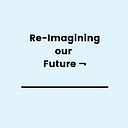Re-Imagining Trauma Informed Coaching
Scenario 1:
A young, fit man enters our Capoeira class and starts our warm up. Struggling to keep pace he sits down and confides to the Teacher that yesterday he suffered a panic attack. His father advised him to run it off at the gym. Disheartened and without the physical strength to resume class, he leaves and never returns.
His father was most probably pushing his son with good intentions. Maybe a more feminine, gentle approach would have supported to balance the young man’s body instead of straining it further?
If I were his guide, I would have invited him to sit against a wall for two minutes before practicing, and relax through deep breathing and allowing his limbs to shake, releasing the cortisol and adrenaline. Then I would share with him a grounding technique to help him mitigate stress and prevent panic attacks.
Scenario 2:
A middle aged, athletic woman wants to learn kickboxing to improve her fitness and ‘let off steam’. The mixed-gender class is no trouble for her, yet she finds sparring difficult and loses concentration. Discouraged by her stalled progress, she thinks she’d do better in a ‘women’s only’ group.
The lady had left an abusive relationship. I realise there’s no threat in the class and no reason for her to leave, but she has not faced her fears and they manifest when she spars. Her body still feels disempowered.
If I were her guide I would have shown her how to coordinate breath and body so she did not lash out or freeze. I would have told her how a still mind allows emotional content to flow through her body and fuel her movements so her anger can be expressed healthily.
Have you ever felt like you’re losing control? Our world right now is in a state of flux. Around us there is insecurity, borne out of the pandemic, distrust due to fractured governments and tremendous suffering for humans and the environment. No matter where we are in the world, thanks to the news media and other digital technologies, it seems we cannot escape the feeling of dread, as we are perpetually bearing witness to the anxiety and pain of others.
It is enough to make you want to scream! It is nearly impossible to live life undamaged. Each of us carries deep wounds and unresolved emotions. I also believe that many of us are suffering from the effects of PTSD, whether diagnosed, or not. Your body is not only connected to your mind, it is also connected to the experiences of your ancestors. And it remembers much more than just your memory.
In Martial Arts we regularly teach people that are seeking out the practices due to the pain of an abusive relationship, bullying, violence, domestic abuse, low self-esteem etc. As Instructors we are entrusted with the bodies, minds, and souls of the people we are guiding. So why do we largely only concentrate on the body? It seems that in the long run, this narrow-focus in martial arts teaching has led to chemical imbalances, the development of negative self-image and inauthenticity.
Before Martial Arts teachers guide you in developing skills and fighting techniques wouldn’t it be better if they first helped their students to better prepare the mind-body how to effectively self-regulate, and react to triggering events? “Well that’s why I practice yoga, meditation, mindfulness etc.”, I hear that all the time. It is time for integration. Martial Arts is rooted in the spiritual. Essentially, it is the ancient wisdom of balancing the hard and the soft, the ying and the yang, within and without. I think it is our responsibility to offer more…..
It is time to embrace the Martial Arts for healing once again. Letting go of the ego-driven, body-breaking, and financially dependent practice it’s become. And, again, offering the practice out of the spirit of the service, with the intention of finding harmony with nature and ourselves, and enabling others to do the same. When you can deeply connect with a movement, it has the potential to heal you deeply.
I have found that offering this style of balanced teaching is very challenging, when teaching in a broader environment that emphasises the masculine and perceives vulnerability, and softness, as weakness.
Martial arts showed me that within all of us resides an innate wisdom for protection and personal power. Through intention, purpose and perseverance we can connect with our own rhythms again and find release not just relief. For when we feel safe in our bodies we can begin to create a safer world for others.
Competition and cooperation are natural characteristics in all living systems, just like the masculine and the feminine. It seems our human-systems have lost balance, and have shifted more towards the side of the masculine. Can you imagine if things were more balanced?
Lead Author: Raposa (Capoeira Name)
Raposa is a trainer and qualified KickBoxercise and Studio instructor trained in Boxing, Kung Fu, Capoeira, Silat, FMA, Weapons, Qi Gong and Tai Chi. A Graphic Designer she is now rediscovering illustrating and sewing in the UK and eager to explore soulful creative, learning experiences.
Anchor Author: Daniel Rudolph (final paragraph)
Daniel Rudolph is interested in exploring alternative, experiential learning opportunities for people of all ages. He is passionate about forming community, and building public spaces for meaningful, transformational gathering. Currently he is spending a lot of his time learning juggling and facilitating gatherings. He also enjoys writing and sharing poetry. Daniel is a very curious and playful person and is always open for creative collaborations.
